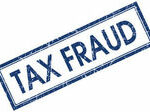IRS warns of a new tax bill scam

November 17, 2016
by Seena Gressin
Attorney, Division of Consumer & Business Education, FTC
We certainly understand if the latest IRS imposter scam makes you queasy: it involves a fake IRS tax notice that claims you owe money as a result of the Affordable Care Act.
The IRS says the fake notices are designed to look like real IRS CP2000 notices, which the agency sends if information it receives about your income doesn’t match the information reported on your tax return. The IRS says many people have gotten the bogus notices, which usually claim you owe money for the previous tax year under the Affordable Care Act.
It’s one of many IRS imposter scams that have popped up. As tax season nears, we’ll see more. The good news? There are red-flag warnings that can help you avoid becoming a victim. For example, the IRS will never:
- Initiate contact with you by email or through social media.
- Ask you to pay using a gift card, pre-paid debit card, or wire transfer.
- Request personal or financial information by email, texts, or social media.
- Threaten to immediately have you arrested or deported for not paying.
In the new scam, the fake CP2000 notices often arrive as an attachment to an email — a red-flag — or by U.S. mail. Other telltale signs of this fraud:
- There may be a “payment” link within the email. Scam emails can link you to sites that steal your personal information, take your money, or infect your computer with malware. Don’t click on the link.
- The notices request that a check be made out to “I.R.S.” Real CP2000s ask taxpayers to make their checks out to “United States Treasury” if they agree they owe taxes.
In the version we saw, a payment voucher refers to letter number LTR0105C, and requests that checks be sent to the “Austin Processing Center” in Texas. But scammers are crafty. They could send messages with a variety of return addresses.
You can see an image of a real CP2000 notice on the IRS web page, Understanding Your CP2000 Notice. If you get a scam IRS notice, forward it to phishing@irs.gov and then delete it from your email account. Let the FTC know too.
